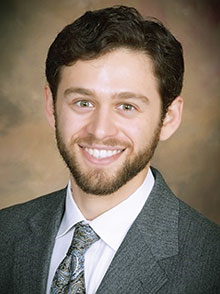Bill Aims to Bolster Local Response to Community Trauma Following Natural Disaster
Abstract
APA-supported legislation introduced in both the House and Senate would create a new grant program aimed at strengthening community mental health initiatives to promote resilience in the face of weather-related disasters.
The increasing rate and severity of natural disasters are undeniable, and they unfortunately carry significant mental health consequences, said Joshua Wortzel, M.D., M.Phil., chair of APA’s Committee on Climate Change and Mental Health. Yet new legislation would attempt to address the nation’s ongoing mental health crisis by addressing the community trauma caused by natural disasters.

“We need the creative, community-level strategies that the Community Mental Wellness and Resilience Act will foster and support in cases of acute and long-term disruptions from natural disasters,” said Joshua Wortzel, M.D., M.Phil.
Wortzel spoke at a Congressional briefing on the Community Mental Wellness and Resilience Act (HR 3073 / S 1452) in July. The bill would establish a new grant program under the U.S. Centers for Disease Control and Prevention to fund community-based programs that use a public health approach to build mental wellness and resilience. The programs would aim to reduce mental health problems generated by emergencies, disasters, and the toxic stresses people experience when exposed to prolonged, severe situations.
“Heat waves and warmer temperatures are associated with higher rates of suicide, violence, and mental health hospitalizations,” Wortzel said. “Droughts, floods, wildfires, and hurricanes directly contribute to psychological trauma, and these are associated with increases in substance use and domestic violence.”
The briefing, which was hosted by the International Transformational Resilience Coalition (ITRC) and co-sponsored by APA and other mental health organizations, brought together leaders of community mental wellness and resilience programs across the country who explained how the Community Mental Wellness and Resilience Act would benefit their communities.
Bob Dopplet, ITRC’s coordinator, outlined what is necessary to build a population’s capacity for resilience at the community level, such as social connections across cultural, economic, and geographic boundaries; active engagement with residents in building healthy, safe, equitable, and resilient-built environments; and engagement with residents in practices that enhance mental wellness and resilience.
The bill was introduced by Reps. Paul Tonko (D-N.Y.) and Brian Fitzpatrick (R-Pa.) in the House and Sen. Edward Markey (D-Mass.) in the Senate. It is co-sponsored by Reps. Don Bacon (R-Neb.), Kathy Caster (D-Fla.), and Mary Peltola (D-Ark.) in the House and Sens. Jeff Merley (D-Oreg.), Richard Blumenthal (D-Conn.), and Sheldon Whitehouse (D-R.I.) in the Senate.
During the briefing, Tonko referenced the numerous extreme weather events that gripped much of the country this past summer, including catastrophic flooding, poor air quality driven by wildfire smoke, and record heat waves. “In 2021, more than 40% of Americans lived in a county impacted by a major natural disaster,” he said. “To ensure a healthier and more sustainable future for all, we must respond to and help prevent the mental health challenges that people face during and certainly after disasters.”
Bacon pointed to the mental health challenges facing youth and emphasized the importance of funding community-based programs tailored to help residents in their own locales. “A strong community is medicine,” he said.
Many Americans who have not yet faced such disasters are experiencing what Wortzel called climate distress, which he defined as a range of psychological responses—including fear, anger, and grief—about natural disasters and their effects that people may expect to face sometime in the future.
“Natural disasters know no race or class,” he continued. “They produce physical and mental health effects, economic disruptions, housing and food insecurity, forced migration, and other challenges for everyone they touch. But those who are already more vulnerable, including children and those economically and racially marginalized, often face the greatest obstacles in addressing and accessing resources to recover.”
The shortage of mental health professionals may only worsen the psychological consequences of natural disasters, he added. Passing the legislation “is an essential step to strengthening the mental health of our country.” ■



